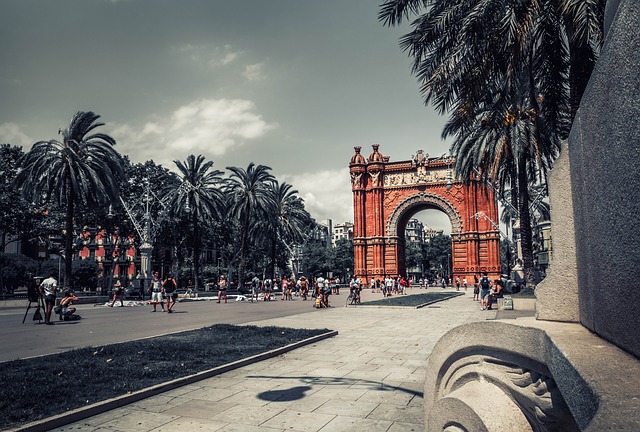
As the Catalonian referendum continues to make international headlines, people around the world are asking about the cultural distinctions between Catalonia, a region in northeastern Spain, and the rest of the Spanish territory. During my business travels to Barcelona, Spain, the phrase ‘Catalonia is not Spain’ has not only been heard, but viscerally experienced during conversations, meetings, and negotiations.
While Catalonia, or Cataluña, is geographically and politically part of Spain, it differs from the western Spain as a distinct region with its own unique culture and history. Their differences can be traced back to the development of regional dialects after the Romans conquered the peninsula, then to the 8th century when the Franks recaptured Barcelona from the Moors, allowing the region to flourish independently.
Today, Spain and Catalonia are considered by the European Union as one united country, but two thousand years of differences still persist. Whether you’re Barcelona-bound or simply curious about the impressive distinctions between these two proximate regions, here are four notable differences between Catalan and Spanish culture.
- Language: As anyone from Catalonia will tell you, Spanish is not the same as Catalan, a romance language closer to French and Italian than Spanish and Portuguese. If you speak fluent Spanish, you’ll probably be able to understand some Catalan, but strive to make an effort to learn basic phrases and words before traveling to the region. While many Catalans are bilingual, many locals are proud nationalists and will only reply in Catalan, which they consider the official regional language.
- Economy: While Catalonia occupies a mere 6% of Spanish territory, the region’s economy is an industrial powerhouse with booming communication, financial, and manufacturing sectors. Meanwhile, Spain’s principal industries include agricultural production, automobile manufacturing, and tourism.
- Holidays: While certain holidays such as Epifania del Señor on January 6, Asunción de la Virgen on August 15, and Immaculate Conception Day on December 8 are common to all of Spain, Catalonia has several holidays particular to the region. In Catalonia, mark your calendars for Sant Joan on July 24, La Diada on September 11, and Sant Esteban on December 26. It’s also important to note that if Catalonia declares independence, certain national holidays such as Fiesta Nacional de Espana and Constitution Day will become unique to Spain.
- Arts and Culture: While Madrid is a bastion of classical art with the Museo Nacional del Prado welcoming over two million tourists every year, Catalonia is a haven of the Art Nouveau movement. Barcelona’s architecture is infused with architect Salvador Gaudi’s whimsical influence throughout the city, such as The Sagrada Familia and Parc Güell. Other famous artists such as Salvador Dali and Joan Miro also called Catalonia home. Meanwhile, while flamenco may be a trademark of Spanish music, Catalonia claims the sardana as the region’s traditional dance. Sardana calls for a large group joining hands and dancing to lively music played by a coral.
From Cantabria to Catalonia, Spain’s regions are incredibly diverse, and provide a fascinating look at the role of historical tradition and cultural ties in the development of national identity. Consider these four differences when discussing Catalonia’s cultural ties to Spain, and keep them in mind when visiting the region!
Sharon Schweitzer and Amanda Alden co-wrote this post. Sharon Schweitzer, J.D., is a cross-cultural trainer, modern manners expert, and the founder of Access to Culture. In addition to her accreditation in intercultural management from the HOFSTEDE centre, she serves as a Chinese Ceremonial Dining Etiquette Specialist in the documentary series Confucius was a Foodie, on Nat Geo People. She is the resident etiquette expert on two popular lifestyle shows: ABC Tampa Bay’s Morning Blend and CBS Austin’s We Are Austin. She is regularly quoted by BBC Capital, Investor’s Business Daily, Fortune, and the National Business Journals. Her Amazon #1 Best Selling book in International Business, Access to Asia: Your Multicultural Business Guide, now in its third printing, was named to Kirkus Reviews’ Best Books of 2015. She’s a winner of the British Airways International Trade Award at the 2016 Greater Austin Business Awards
Amanda Alden is an intercultural research assistant with Access to Culture. She graduated with honors from St. Edward’s University with a major in Global Studies and a minor in French, and is currently pursuing a master’s degree in Intercultural Mediations at l’Université de Lille III. Feel free to connect with Amanda at on LinkedIn.
Photo by Pixabay

Leave A Comment